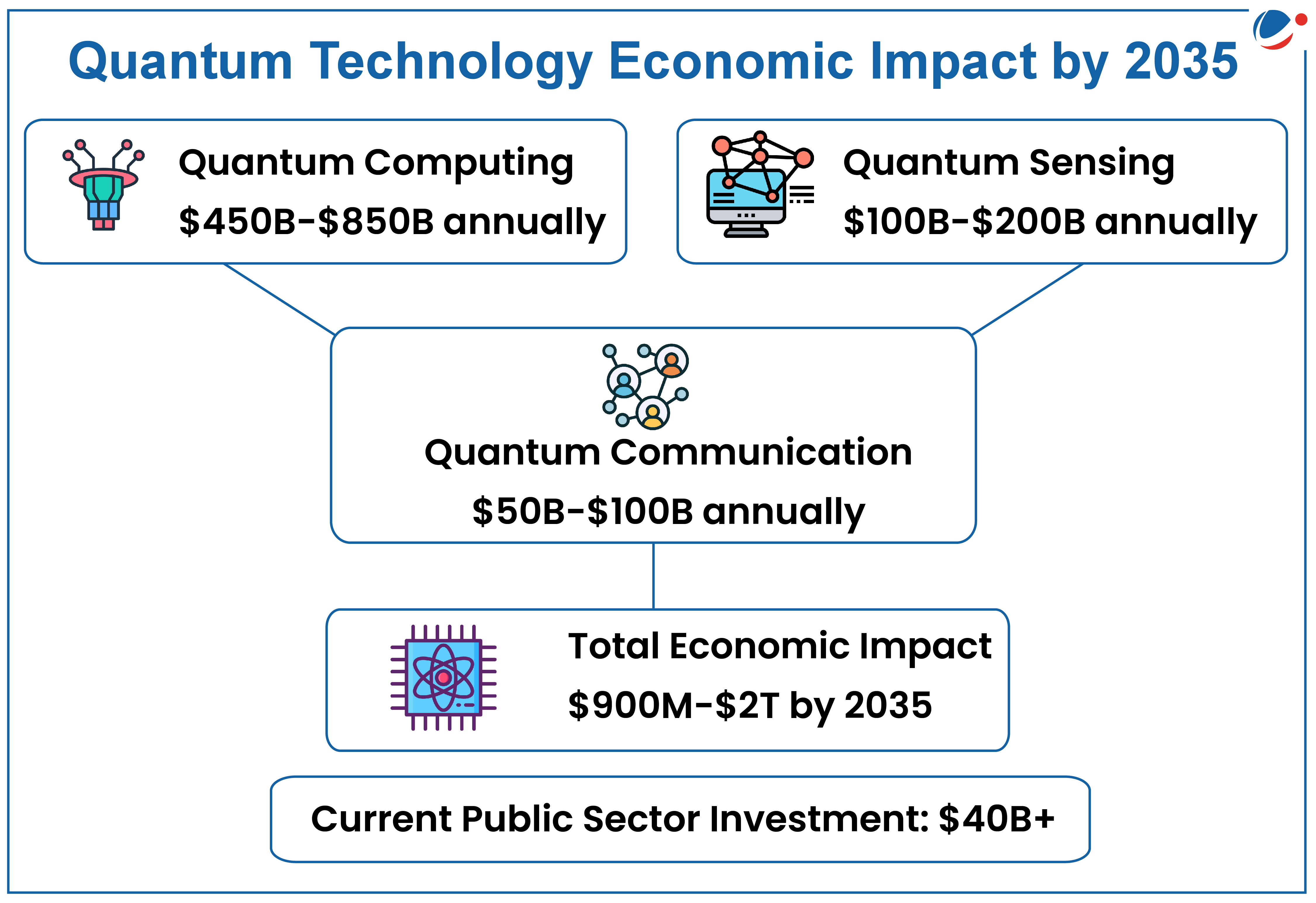The report titled “Embracing the Quantum Economy: A Pathway for Business Leaders” sheds light on the economic potential for quantum technologies (refer to the infographic).
- WEF’s Quantum Economy Network (QEN), part of the Centre for the Fourth Industrial Revolution, facilitates stakeholders to understand and prepare for the economic impact of quantum technologies.

About Quantum Technologies
It incorporates:
- Quantum computing: An emerging field of computer science that uses quantum mechanics to solve problems beyond the capabilities of classical computers.
- Quantum sensing: Quantum sensors, which have been in use for decades, offer unprecedented sensitivity and precision.
- It includes tools like atomic clocks and accelerometers, used in navigation, medical imaging, and geophysics.
- Quantum communication: It ensures secure data transmission through theoretically unbreakable encryption, crucial for future-proofing cybersecurity and creating new products and services.
Technological Challenges in Unlocking Quantum Technologies
- Error Rates: Qubits (Quantum Bits) are fragile and prone to errors due to environmental interference and decoherence.
- Scalability: Building large-scale quantum computers is difficult without increasing errors and resource demands.
- Interoperability: Quantum systems need seamless integration with classical systems, requiring hybrid models and new software.
- Sensitivity and Precision: Real-world performance is hindered by temperature changes and electromagnetic interference, affecting sensor accuracy.
- Security and Reliability: Ensuring secure, reliable quantum communication over long distances faces challenges like signal loss and noise.
To unlock the potential of the quantum economy, the report emphasizes public-private partnerships, investment in education, and strong regulatory frameworks.




